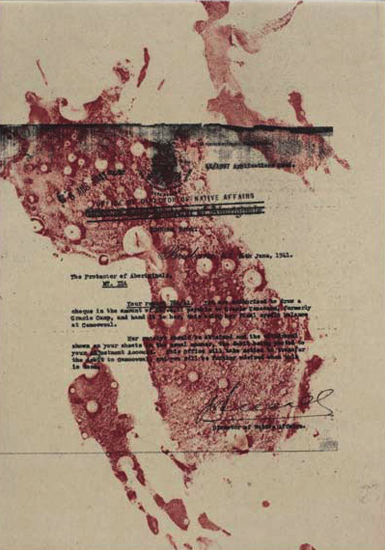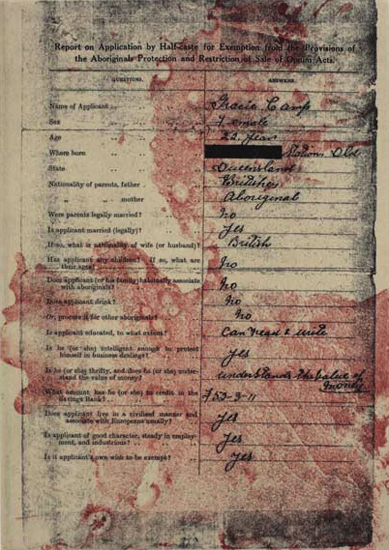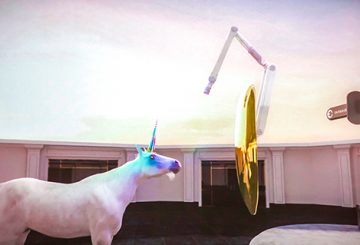Welcome back Art Life contributor Meredith Birrell as she takes a peek into the future of remembering…
Future Feminist Archive, organised by the research cluster Contemporary Art and Feminism (CAF) at Sydney College of the Arts is, according to their website, “a yearlong project across Australia, in which artists, archivists and art historians engage with archives and collections of all kinds to create exhibitions, workshops, performances and publishing outcomes.” Its first manifestations are the exhibition, a symposium held at the AGNSW on Friday 6th March (video of this will be made available at a future date) and several satellite events and exhibitions showing over the next month around Sydney.
The concept of the archive has been a talking point in the arts for some time. As a conceptual trope, it embodies various strategies of mining the past in order to reflect on the present and interrogate the future. Two significant moments in its trajectory have been Hal Foster’s ‘An Archival Impulse’, (October, 2004), and Okwui Enwezor’s exhibition Archive Fever: Uses of the Document in Contemporary Art, (New York, 2008, which borrowed directly from Jacques Derrida’s text Archive Fever: A Freudian Impression of 1995). We may then ask what currency does the archive have now? CAF’s project offers another way of looking at the question, namely, what will be the archive’s continuing use into the future, especially for feminism? It is the memory-work – the archiving – that feminist artists and scholars have been engaging with for decades, and continue to work with, that is of interest here.
Future Feminist Archive the exhibition contains within it discrete, more focussed kernels. These include Artist Archive, a series of artist interviews (Jane Polkinghorne and Anne Kay), Daughters Mothers, a collaborative exchange between four daughter and mother pairs, Feminist Film Archive, a screening of six foundational films from the 1970s and the Parramatta Female Factory Memory Project (Bonny Djuric), a video documentary about the ongoing community project to salvage the buildings and memories of the former Girls Home there. The exhibition is diverse, discursive and dense. It ranges from video works, to installation, performance, printmaking, drawing, poster art, ceramics and puppetry. All the works deal with the archive in their own way, some political, some personal and some witty.
Judy Watson, her mother Joyce and sister Margy contributed a collection of pieces to Mothers Daughters. These include Judy’s series of etchings Under the Act (2007), a video based on the life of her Grandmother, Grace (2012), a large fabric print, Trumpter Fish and Ghost Net (2014) and Margy’s series of ten etchings Catalogue of Shoppers (1985). For Under the Act, Judy trawled the Queensland State Archives to find documents relating to the history of her Indigenous grandmother Grace Camp’s marriage to Alf Isaacson, a white man. Like all Aboriginal Australians at the time, Grace was bound under the government’s Aboriginal Protection and Restriction of Sale of Opium Acts of 1897. Basic human rights were denied to Aboriginal Australians under this act, including the freedom to marry whom they chose. This series of etchings with chine collè looks at the bureaucratic minefield that had to be negotiated before Grace could wed. This work was a potent reminder of systemic racism, still profoundly relevant today, as well as being a tribute to Judy’s matrilineal heritage. The effect of the obscured and murky ink of government papers overlaid with dark pools of red was moving and deeply engaging.
I was struck at the powerful and articulate voices of some of the films shown as part of the Future Feminist Film Archive, six films emerging from the rise of feminist film making in Australia. Film for Discussion (1973), produced by Martha Ansara and the Sydney Women’s Film Group and starring Jeni Thornley, was a sharply edited, pointed depiction of the growing sense of frustration among young women of the time, as seen through the relationships Jeni has with her work colleagues, boyfriend and family. With few female predecessors and little training, these women found a way of talking about issues that still resonates today.
We may assume the ‘archive fever’ will cool down at some point, but an idea lasts as long as the discussion around it. Projects such as Future Feminist Archive seek to extend the conversation, proposing new (and evolving) terms of reference. What form the archive takes in the future remains to be seen, and it is precisely in the realm of the unknown that such a project as this situates itself. It is the dialogue of the present after all, that prepares us for our future.
SCA Galleries until 28th March
Other Events:
Some Posters / Local Positions, Cross Art Projects, until 11th April
Girls at the Tin Shed: Sydney Feminist Film Posters 1975-90, Sydney University Art Gallery, until 24th April




